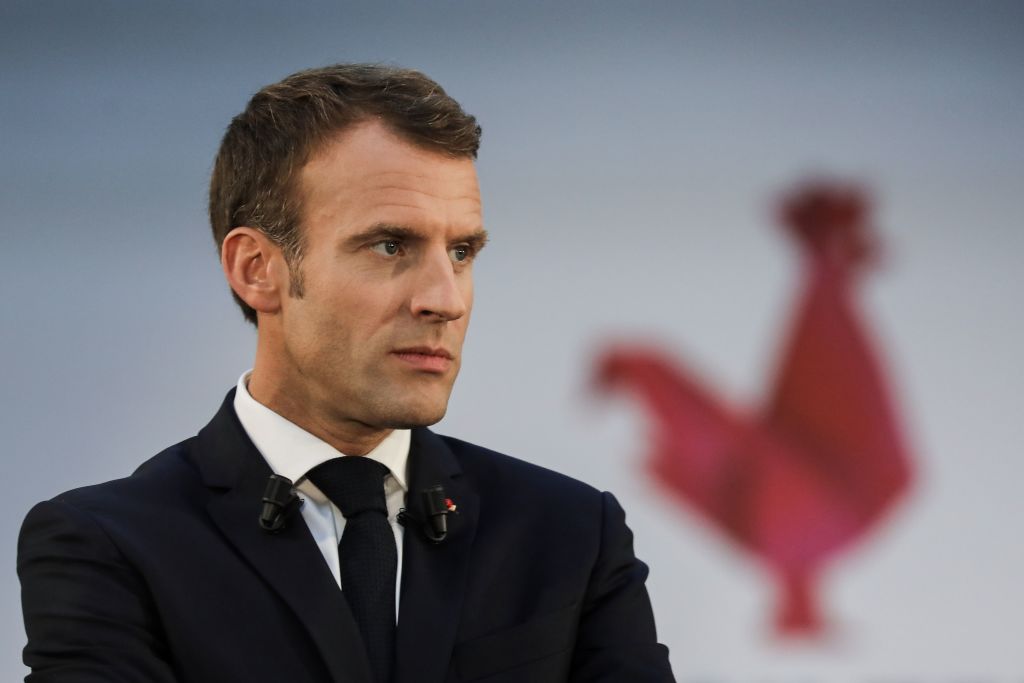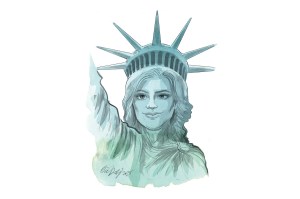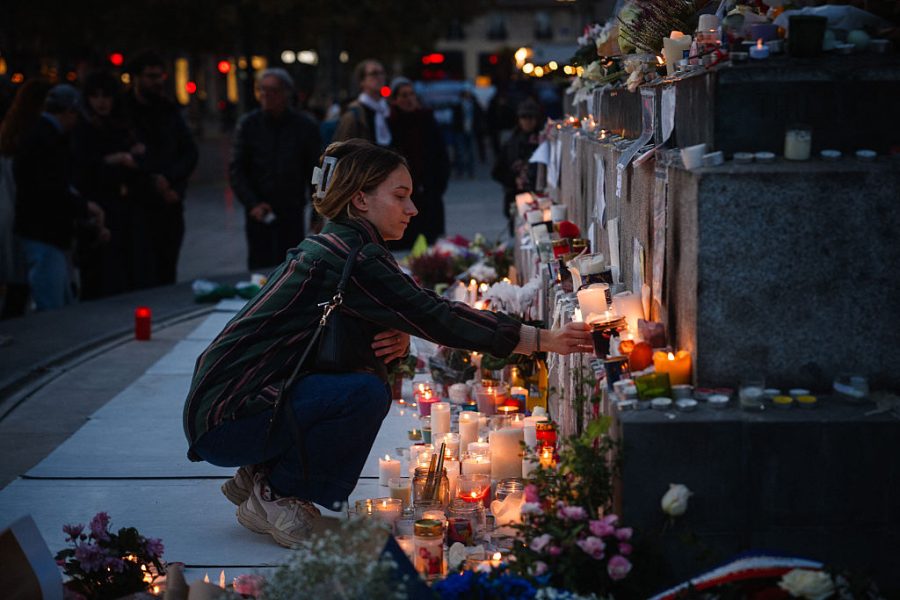Emmanuel Macron’s bold declaration last Friday that the Republic will eradicate Islamic extremism appeared to draw a swift response in Lyon.
On Saturday evening 12 masked men carried out a well-coordinated attack against a church in the suburb of Rillieux-la-Pape in what the interior minister, Gérald Darmanin described as a ‘shock against the Republic’.
Attacks against churches and other symbols of Christianity are widespread in France; in 2017 there were 1,038 such acts recorded, a figure that rose to 1,063 the following year. Not all the attacks are carried out by Islamists. Some are vandalized by the bored or unhinged, and many are the work of the far left. When Notre-Dame Cathedral was badly damaged last year in an accidental fire, a branch of the French wing of antifa declared: ‘The only church that illuminates is the one that burns.’
In his address last week Macron outlined a series of measures to tackle the growing influence of Islamic extremists that will be put before parliament in January. The French president explained that the Islamists’ objective is to create a ‘counter society’ and so far they have been successful. In a thinly veiled attack on the inertia of his predecessors, Macron said: ‘As we withdrew they pushed ahead with their project, methodically. And we let it happen.’
Macron’s pugnacious words are a vindication of sorts for the small band of brave men and women in France who for decades have warned of what extremists were up to. Since taking office Macron has sought the counsel of the Arabist Gilles Kepel, whose 1987 book, The Banlieues of Islam, was the first to shine a light on the emergence of the counter society. Then in 2001 came The Lost Territories of the Republic by Georges Bensoussan, a shocking exposé on how Islamic extremism had taken root in many parts of France.
Bensoussan was trashed by many on the left for telling the truth — even now there are those who continue to deny the reality that many inner cities have been lost to Islamic extremism. Among the most prominent is Jean Luc Mélenchon, the leader of the far-left France Insoumise. He was taken to task last month by Fabrice Nicolino, one of the few survivors of the Charlie Hebdo massacre in 2015. Describing the ‘stupidity’ of Mélenchon and his ilk, Nicolino derided their hypocrisy in praising pro-democracy protesters in Belarus while ‘not caring that a magazine lives in a state of siege in Paris’.
Gérald Darmanin leveled a similar accusation at France Insoumise on Tuesday during an angry debate in the National Assembly. Predictably, elements within the left have accused Macron of stigmatizing Muslims with his declaration. ‘You avoid the social and health problems tearing apart our country by focusing opinion on an obsessional question: Islam, Islam, Islam!’ said Alexis Corbière, one of France Insoumise’s MPs. Darmanin retorted that Corbière’s party is ‘bound to an islamo-gauchisme which is destroying the Republic’.
Islamic extremism has become the blind spot of the left and accounts for their near extinction as a serious political force in France. Wiped out in the 2017 presidential election, the center-left Socialist party remain a fringe outfit, while France Insoumise are the Gallic equivalent of Momentum.
Yet still they don’t get it. In January this year a 16-year-old gay woman called Mila received numerous death threats after using social media to criticise all religions, including Islam. The first reaction of Nicole Belloubet, the then justice minister, was to imply the teenager had only herself to blame for her blasphemous remarks.
Belloubet, a former socialist before she jumped ship to the LREM, was removed in a summer reshuffle. Another of the ruling party’s MPs, Aurélien Taché, quit of his own accord because he believed Macron was moving too far from the left. In August Taché accused the government of being ‘anti-Muslim’ after they ordered the expulsion of four members of a family of Bosnian Muslims after they beat up their 17-year-old daughter (and shaved her head) when they discovered her boyfriend was a non-Muslim Serb.
[special_offer]
The majority response in France to Macron’s promise to combat Islamic extremism is skepticism. Of the 121,000 people who responded to a poll in the center-right Le Figaro, 74 percent believed his attempt will end in failure. Not so much because of an unwillingness on Macron’s part but because much of the apparatus for fighting Islamic extremism is still dominated by the left. For example, a Pakistani immigrant who last month attacked two journalists outside the former offices of Charlie Hebdo had arrived in France three years ago claiming to be an unaccompanied minor but social services suspected he was older. They sought permission from a child’s court to conduct a medical examination to determine his exact age but were refused.
Similar judicial naivety allowed Adel Kermiche to walk free from prison in March 2016 after he promised the judge he wasn’t an extremist, but ‘a Muslim grounded in the values of mercy and goodness’. Four months later he slit the throat of a priest as he conducted Mass in his Normandy church.
It was Macron’s predecessor, François Hollande, who in 2015 declared that France was at ‘war’ with Islamic extremism. The Socialist president, however, was a weak appeaser. Whether Macron succeeds where Hollande failed will depend to a large extent not just on his determination to crush Islamic extremism but also its loyal allies on the far left.
This article was originally published onThe Spectator’s UK website.

























